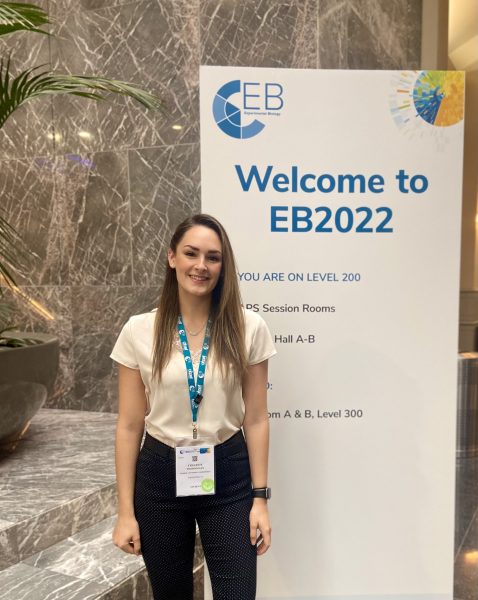Matthew Songer, (Biological Sciences ’79) and Laura Songer (Biological Sciences ’80) have generously donated funds to the College of Sciences and Arts (CSA) to support a research project competition, the Songer Research Award for Human Health, for undergraduate and graduate students. Remembering their own eagerness to engage in research during their undergraduate years, the Songers established these awards to stimulate and encourage opportunities for original research by current Michigan Tech students. The College is extremely grateful for the Songers’ continuing interest in, and support of, Michigan Tech’s programs in human health and medicine. This is the sixth year of the competition.
Students may propose an innovative medically-oriented research project in any area of human health. The best projects will demonstrate the potential to have a broad impact on improving human life. This research will be pursued in consultation with faculty members within the College of Sciences and Arts. Awarded in the Spring of 2023, the Songers’ gift will support one award for undergraduate research ($4,000) and a second award for graduate research ($6,000). Matching funds from the College will allow two additional awards. The research will be conducted over the Summer of 2023 and/or the following academic year.
Who Is Eligible to Apply?
Any Michigan Tech student interested in exploring a medically related question under the guidance of faculty in the College of Sciences and Arts may apply. Students majoring in any degree program in the College, including both traditional (i.e., human biology, biological sciences, exercise science, chemistry) and nontraditional (i.e., physics, psychology, social science, mathematics) programs related to human health may propose research projects connected to human health. Students are encouraged to propose original, stand-alone projects with expected durations of 6 – 12 months. Preference is given to proposals that are student-initiated ideas, not merely an extension of the advisor’s work. The committee also encourages applications from CSA students who seek to continue research projects initiated through other campus mechanisms, such as the Summer Undergraduate Research Fellowship (SURF) program, Pavlis Honors College activities, or the Graduate Research Forum (GRF).
How May The Funds Be Used?
Funds from a Songer Award may be used to purchase or acquire research materials and equipment needed to perform the proposed research project. Access to and research time utilizing University core research facilities, including computing, may be supported. Requests to acquire a personal computer will be scrutinized and must be fully justified. Page charges for publications also may be covered with award funds, as will travel to appropriate academic meetings. This award may not be used for salary or compensation for the student or consulting faculty.
How Can Students Apply For The Songer Research Award?
To apply, students should prepare a research project statement (up to five pages in length) that describes the background, methods to be used, and research objectives. The statement also should provide a detailed description of the experiments planned and expected outcomes. Students must indicate where they will carry out their project and attach a separate list of references/citations to relevant scientific literature. The application package also should provide a concise title and brief summary (1 page) written for lay audiences. A separate budget page should indicate how funds will be used. Finally, a short letter from a consulting faculty member must verify that the student defined an original project and was the primary author of the proposal. The faculty member should also confirm her/his willingness to oversee the project. This faculty letter is not intended to serve as a recommendation on behalf of the student’s project.
Submit applications as a single PDF file to the Office of the College of Sciences and Arts by 4:00 p.m. Monday, April 24, 2023. Applications may be emailed to djhemmer@mtu.edu.
How And When Are Applicants Reviewed?
The selection committee will consist of Matthew Songer, Laura Songer, Rob Larson (BioSci), William Cooke (KIP), and Nicole Roeper. The committee will review undergraduate and graduate proposals separately and may seek additional comments about the proposed research on an ad-hoc basis from reviewers familiar with the topic of the research proposal. Primary review criteria will be the originality and potential impact of the proposed study, as well as its feasibility and appropriateness for Michigan Tech’s facilities.
When Will 2023 Songer Research Award for Human Health Applicants Be Annonced
The committee expects to announce the recipients by late April of 2023. This one-time research award will be administered by the faculty advisor of the successful student investigator. Students will be expected to secure any necessary IRB approval before funds will be released. Funds must be expended by the end of the spring semester of 2024; extensions will not typically be granted. Recipients must submit a detailed report to the selection committee, including a description of results and an accounting of finds utilized, no later than June 30, 2024.
Any questions may be directed to David Hemmer (djhemmer@mtu.edu).
